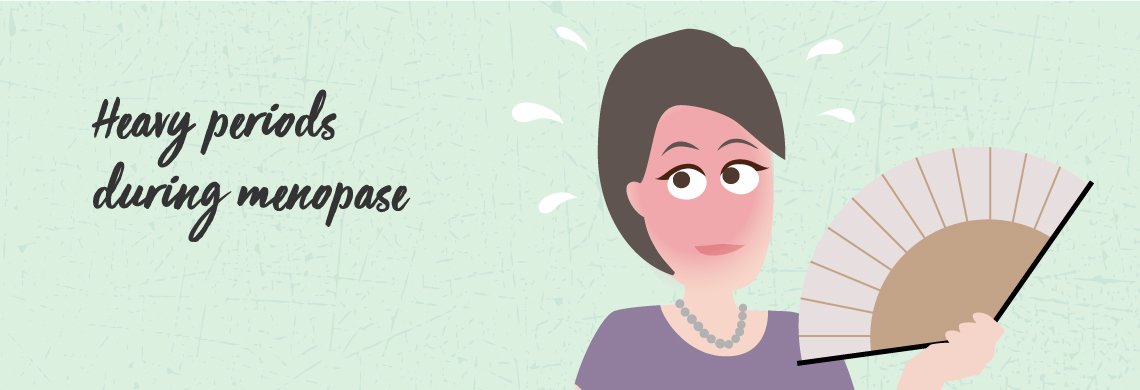
Heavy periods during the menopause? Why they happen and what you can do about it!
How will your periods change during (peri-) menopause? What exactly can you expect? Because if women’s problems were not bad enough, you will sooner or later also have to deal with the menopause too. Most importantly: is there anything you can do about your symptoms?
It’s the menopause, right?
We all use the word menopause to cover the time from when we first start to experience symptoms like hot flushes to when our periods stop. Right? Well yes we do, but technically we’re wrong. The menopause actually only lasts a day – it’s the moment you menstruate for the last time. The time before that is known as peri-menopause, the time after as post-menopause.
The most common complaints during peri-menopause
The peri-menopause, can start as early as the age of 35 and, you guessed it, for a quarter of all women causes a host of symptoms. The peri-menopause can last for ten years (!) and can disrupt your hormones completely. The most common symptoms are hot flushes, headaches, night sweats, bloating, negative emotions, anxiety, fatigue and heavy periods.
Changing periods
Your periods (not surprisingly) are one of the first things affected during the peri-menopause. In fact, this is how most women realise that it’s started. It is impossible to predict how peri-menopause might affect your period. The duration and symptoms may decrease or conversely, increase. This is due to fluctuations in hormone levels (oestradiol, oestrogen, and ultimately progesterone levels gradually decrease), which causes changes to the formation of the endometrium (the lining of your womb). This has a direct effect on your periods and may cause heavy bleeding. Many women assume such bleeding is part of getting older and accept it, even though the monthly ups and downs dictate their whole lives. There actually is no reason to put up with heavy periods, as your GP should be able to help you as it’s a recognised medical condition called menorrhagia.
Getting help for heavy periods
If heavy periods are ruling your life, it’s time for action! Go to your GP and discuss the options, but before you go make sure you’re ready to make the most of your appointment. Take the time to get the information ready, understand what your GP needs to help you and the treatment available. The more prepared you are, the more likely you are to get the help you need (and want!) more quickly!




